
CULTURED’s second annual CULT100 issue spotlights 100 names across five generations who are shaping our culture in real time. Some members of the list are household names; others have been working behind the scenes to make possible the encounters that stop us in our tracks. They are all thinking big, sharing generously, and embodying courage. We hope their work makes you a little braver, too. Order your copy of the CULT100 issue here.
As with Christ, there is a before and after Walton Goggins. One day, everyone woke up with his name on their lips—and they felt a type of way about it.
The Alabama-born, Georgia-raised actor has been around for over three decades, with memorable turns in blockbusters like Django Unchained and Lincoln, but it’s his glitzy swagger as the spray-tanned, silver-streaked televangelist Baby Billy in The Righteous Gemstones that made him a bona fide star. Ratings and viewership of the Danny McBride sleeper hit have been rising steadily since its 2019 premiere, with Billy warbling and conning his way through every season. Last year, Goggins’s eerily erotic performance as a festering ghoul in the first season of apocalypse drama Fallout turned him into a sort of unsettling heartthrob. “It was a surprise,” Goggins told Rotten Tomatoes at the time, of his newfound sex appeal. “He doesn’t have a nose?”
So by the time the actor surfaced in Thailand on the latest season of The White Lotus—as a begrudging sugar daddy with daddy issues, tanned and ripped with scotch and a cigarette perpetually in hand—the word was out. One need only look to the headlines: “His Hair Is Greasy. His Eyes Are Bulging. I Think I’m in Love,” or “Thank You God for All This Goggins.”
Despite all his years in the business, Goggins isn’t that surprised by the sudden frenzy. He greets the attention with a disarming joie de vivre—pausing during his CULTURED cover shoot to take outrageous selfies with adoring fans on the Santa Monica Pier and interjecting repeated thanks to longtime collaborator Jonathan Nolan during their conversation for the issue.
“I’m just an extremely enthusiastic person,” he tells Nolan, who helped direct and executive produce Fallout (the pair are currently filming its second season), a few days after the shoot. The Westworld creator and frequent Christopher Nolan co-conspirator (yes, that’s his brother) is well-versed in bringing our darkest desires to the screen—a task both men seem to relish.
Here, Nolan helps our cover star unpack a wild year.

Walton Goggins: Thank you so much for being here, my friend. This is like a therapy session.
Jonathan Nolan: How are you, Walt? You’re having a year. Not my words, I’m just reading off this sheet they gave me, but seriously—you’re having a fucking moment. I can’t get rid of you. I see you at work, I go home, turn on the TV, and there you are again.
Goggins: It’s interesting to hear that term—“you’re having a moment.” What does that really mean? I feel like I’ve had so many moments in my life.
Nolan: One could even say your life has been a sequence of moments.
Goggins: Right? I guess it means you’re suddenly in more places than before. It feels like things have been expanding over the course of my career. But now, I’m at a point where people can tune in to what I’m doing on more than one channel—that’s pretty cool. You’re partly to blame, buddy. CULTURED asked me this question on set the other day—“What do you think the secret to your success is?” It was interesting to sit with that and try to answer honestly—I said, “If I’m being real, it’s fear.” Truly. A heavy dose of anxiety.
Nolan: Fear of what?
Goggins: Of letting people down, being unprepared, dishonoring the people who made it possible for me to play pretend in front of a camera. So, I try to work harder than anyone in the room. For me, that means spending time in my imagination, reading the script over and over, trying to make it as real as possible. There’s joy in it, for sure—I love what I do. But it’s driven not only by wanting to do a good job—that’s boring—but by being on the level of everyone I’m working with.

Nolan: I’m fascinated by how people’s techniques and approaches change throughout their careers. For me, writing is an endless mystery. Directing, on the other hand, you learn. Sometimes you screw something up and have to put it back together.
Goggins: Can I insert one thing? People love to put us into categories: Are you a writer? A director? A showrunner? What box are you in? I genuinely believe that, even if you evolve, you never stop being the first thing you were. I’m an Angeleno from Lithia Springs, Georgia, who now lives in the Hudson Valley. I’ve brought all my life experiences with me to this point. If you’re a writer-director who then becomes a producer, you’re bringing your writing and directing experience into that role too. So I guess the question is: How has being many things helped you throughout your career?
Nolan: For me, writing is the foundation. I encourage anyone I work with—even if they don’t see writing as a major part of their career—to try it, just to understand it.
Goggins: I’ve tried it. I’m horrible at it.
Nolan: It’s not for everyone. I’m not even sure it’s for me. I’ve been doing this for 25 years and still sit in front of the computer thinking, Ugh. Writing is tough. But you can’t get any closer to the essence of a project than the writing. At the same time, writing is the thing that gets pulled apart. Literally—a bunch of people take the script and pull it to pieces. So as a writer, your only control is excellence. The only way to ensure something stays in the film is to make it undeniable. If it’s borderline, it’s vulnerable. Writing a script is like writing a recipe you never get to cook—with ingredients you never get to hold, smell, or taste. It’s a weird job.
I had one of the best working relationships you could have starting out—I was related to my first director [Christopher Nolan]. I had a couple of inches on Chris, so I could intimidate him into giving me what I wanted on set. But the truth is, the films directed me. Producing and directing completed the arc for me—finally putting the pieces together and synthesizing the work. In some ways, actors have the most and the least control on set, right? I worked with one actor who said, “If I don’t like what you’re doing with the camera, I’m going to spit in the middle of the take.” Literally spit on the ground. He told me that up front, and halfway through the shoot—boom—he did it. It was about control.

Goggins: I agree with that. But I also believe part of the process is being out of control—and leaning into that vulnerability. One thing I feel I have control over is creating space for vulnerability. That comes from the director, for sure—but I can help protect that too. I’ve definitely helped other actors in that way, because I’ve watched other actors do it. I want to make it clear: Whatever you want to try, no judgment, I’ve got you.
I’ve [produced] three or four movies in my life —you haven’t seen them, most people haven’t—but I’m proud of them. And through those experiences, being behind the camera with my partner, who directed them, I learned what it is to boom, to do wardrobe, to grip, to run craft services. I pride myself on that.
Nolan: Do you have a philosophy for your approach to acting? I love to come over and connect on set, but there are definitely times when I think, Nope, he’s fully in it. Especially on [the set of Fallout], when you’re under 20 pounds of prosthetics. Is that distance something you carry into every role? Does it follow you home?
Goggins: If I had to call it something, it would be “reverence.” It’s not like I’m doing anything new—plenty of people I admire do it. It’s not method, it’s not “a way.” I believe storytelling is a kind of religion. It’s its own god. I wouldn’t wear sweats to church; I’d show up looking ready to be saved. In any spiritual practice, the posture is: “Whatever you have for me, I’m prepared to accept it.” I feel the same way about working in film.
I’ll say this. Someone I worked with on The White Lotus didn’t fully understand my process. My character—Rick Hatchett—he’s isolated. So during filming, I was isolated. I liked mirroring that, but it was emotionally difficult. Then, a few months into The White Lotus, Fallout premiered and started to take off. One day, this actor I was working with—nice guy, good actor—came up to me and said, “You’re brilliant in Fallout. Please tell me you had a good time making that.”

I just stared at him. Because he didn’t get it. I don’t care how good you are—if you don’t understand that there’s a world beyond the script, if you don’t give yourself over to it, then you’re missing something profound in this work. This is the drug. I said, “No. I play a guy who’s lived for 200 years and seen the worst of humanity. Every day was fucking horrible.” He just stared back at me like, “Okay, wow.”
So, I lean into that. The people I look up to lean into that. And this guy—again, great actor—just couldn’t understand. “Why would someone do that?” I thought, Why wouldn’t you? I bring that level of seriousness to everything I do. Comedy, drama—I take it all seriously. How many of these chances will I have? I want to squeeze as much life experience as I possibly can out of each one.
Nolan: People often talk about the “character actor”—a term I’ve never fully understood. I mean, there are great actors and there are boring actors. That’s really it. I don’t know how you separate into categories like character versus lead. It just doesn’t make sense.
Goggins: I’m so glad we’re entering this territory. I don’t believe in “character actors.” I hate that fucking term. “You’re a great character actor”—I don’t know if that’s a compliment or a criticism. Was Gene Hackman a character actor? Ed Harris? Julianne Moore? Frances McDormand? All of these people have been leading men and women for decades. Maybe it’s just the difference between who’s throwing the party and who’s a guest.
Nolan: It does feel patronizing. I think I understood the term more before I worked in the business. You’re right—Gene Hackman was just a great actor. Was Al Pacino a character actor or a leading man?
Goggins: Some actors are just infinitely watchable. Marlon Brando, Michael Fassbender—I could watch them read the fucking phone book. I think the term is useless. It may work at an awards show, but it doesn’t speak to an actual career.

Nolan: You’ve had the good fortune of returning to certain TV roles in your career. Uncle Baby Billy [of The Righteous Gemstones has come back] into our lives, which I’m grateful for. Are there any [other] roles you’re excited to return to?
Goggins: I didn’t know serialized television would become what it has—or that I’d be part of the early wave with The Shield. Not my words, but a lot of people say The Sopranos and The Shield helped usher in this golden age of TV.
With Fallout, I can’t wait to get back to work. It’s a lot with the prosthetics, but I think about it even when I’m working on other things. There are movies I’ve done with characters I’ll never get to be again. And I think, Fuck, I want to be that person again.
Nolan: We’ve discussed how silly it is to categorize actors. I do think there’s a more useful distinction between comedy and drama. At least on my side of the business, there’s still a tribal divide—you’ve got the comedy folks over here, the dramatic folks over there. I remember trying to figure out whose career to emulate when I was starting out as a screenwriter. I was captivated by Ernest Lehman—he wrote both North by Northwest and The Sound of Music. And I thought, Fuck, if I could have a career like that… In some ways, I have that balance—most of what I did for my brother was to try and lighten things up a bit.
But you, my friend, have a passport to both nations. It’s hard for me not to think of people like you—who are masterful across that entire spectrum—as just better in a way.
Goggins: Well, I think this interview ends with that statement from Jonathan Nolan on Walton Goggins.
Nolan: I love it. I’ll see you on Monday.

THE CULT100 QUESTIONNAIRE
What is your trademark?
Playing morally dubious characters that people end up rooting for and sometimes falling in love with. Hopefully.
What keeps you up at night?
Providing for my family. It’s a product of growing up in poverty. I know full well that the life of an actor comes with no guarantees. That, coupled with a deep fear that I have made a mistake and might be living beyond my means, is debilitating. I’m constantly having conversations with myself about plan A, plan B, C, D… on a bad night I can get to the end of the alphabet.
What is one book, work of art, or film that got you through an important moment in your life?
The Heart of the Buddha’s Teaching by Thich Nhat Hanh got me through a moment when I was experiencing unrelenting grief and was seeking a new path forward. I went to India. This is the book I brought with me.
What is something people get wrong about you?
My name. It’s Walton, not Walter.
Name an influence of yours that might surprise people.
The poem “If—” by Rudyard Kipling. For so many years I carried around a folded-up copy in my wallet. I would read it for comfort and confirmation. It became an evolving talisman. My next tattoo will be the final line: “And—which is more—you’ll be a Man, my son!”
When was the last time you surprised yourself at work?
Becoming the Ghoul on Fallout. The idea of being in this makeup every day terrified me but I was able to let go, to surrender to this claustrophobic process and turn it into a prolonged meditation. Don’t get me wrong, I still want to rip it off, but it just takes me 12 hours to get to that point now.

Describe a recent crossroads at which you found yourself.
I wake up every morning and stand at the crossroads with two cappuccinos in my hands. I ask myself what kind of artist I want to be, what kind of friend, what kind of father, what kind of husband. My dilemma isn’t about my occupation; it is about what sort of man I can be on any given day.
When you were little, what were you known for?
The tagline given to me as a kid was “Walt raised himself.” I used to think that was my superpower, but eventually I realized that no man is an island. I learned that lesson the hard way. There was so much joy waiting for me after I opened myself up to needing other people. Thank you, psilocybin.
What do you think is your biggest contribution to culture?
Empathy. In dramas and comedies, most of the characters I have played are loners, usually because of circumstances beyond their control. These are judged harshly: seen through the stereotypes they represent instead of the people they are. Beneath all these misconceptions, I find and play a lonely person yearning for connection.
What do you want to see more of in your industry, or less of?
More: Seeing movies in theaters! I miss the communal experience. I think we have spent enough time alone at home. More small films with simple human stories. Less: I wish every set would introduce a no-smartphone policy, since we are incapable of regulating ourselves. This device has prevented us from the kind of focus and connection film magic is made of.

What question do you ask yourself most often while you are making work?
Is this real, and if it isn’t, how do I make it real?
Are people ever starstruck by you?
Fuck yes, I’m Walton Goggins.
What do you want next for yourself above all else?
A day on any Mediterranean beach with my wife and son, a Contratto spritz in my hand, a novel on the table, and a little pill that will allow me to smoke cigarettes with reckless abandon for the rest of this god-given life.
If you could attribute your success to a single quality, what would that be?
Insecurity. That single gnawing sensation compels me to show up for everything in my life as prepared as I can possibly make myself. I take nothing for granted.
Grooming by Ermahn Ospina for Exclusive Artists and Armani Beauty
Photography Assistance by Anna Sophia Moltke and Maxim Marshall
Styling Assistance by Kat Cook

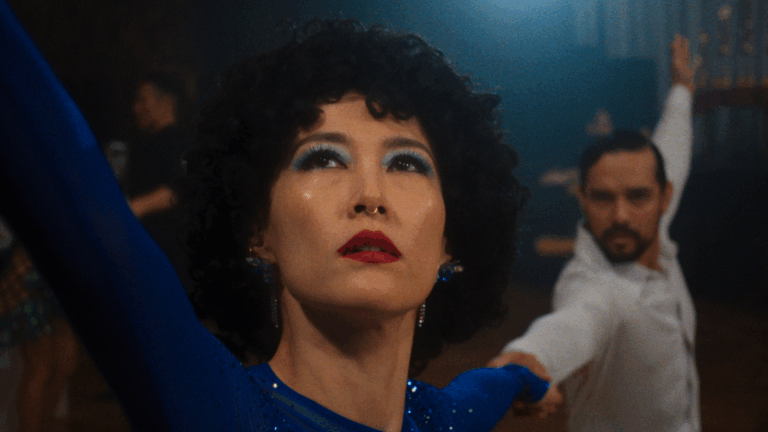
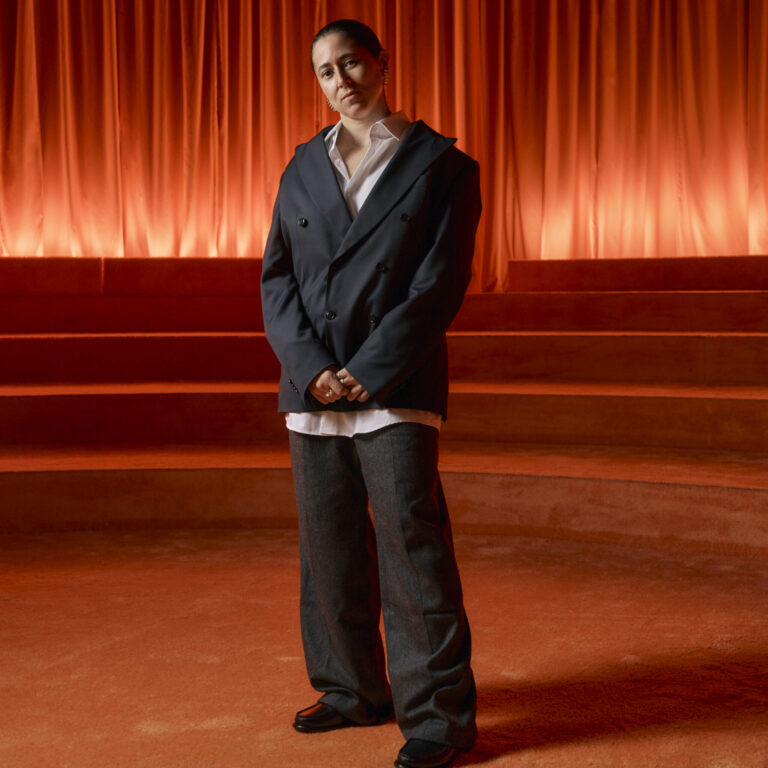
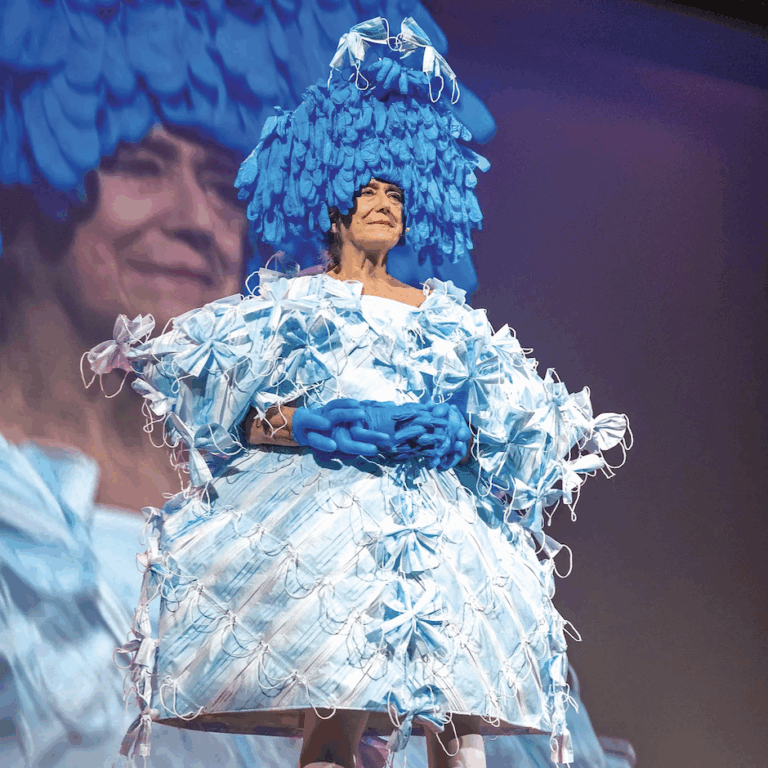
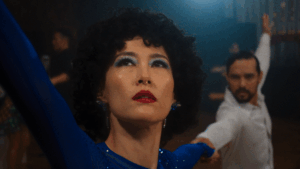
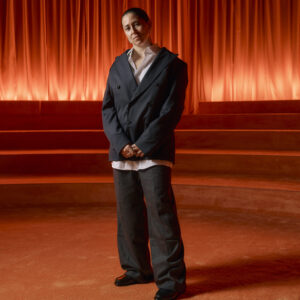
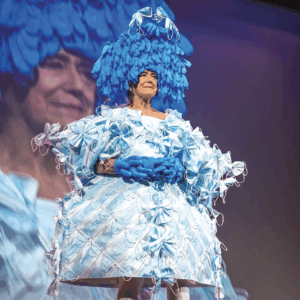



 in your life?
in your life?

